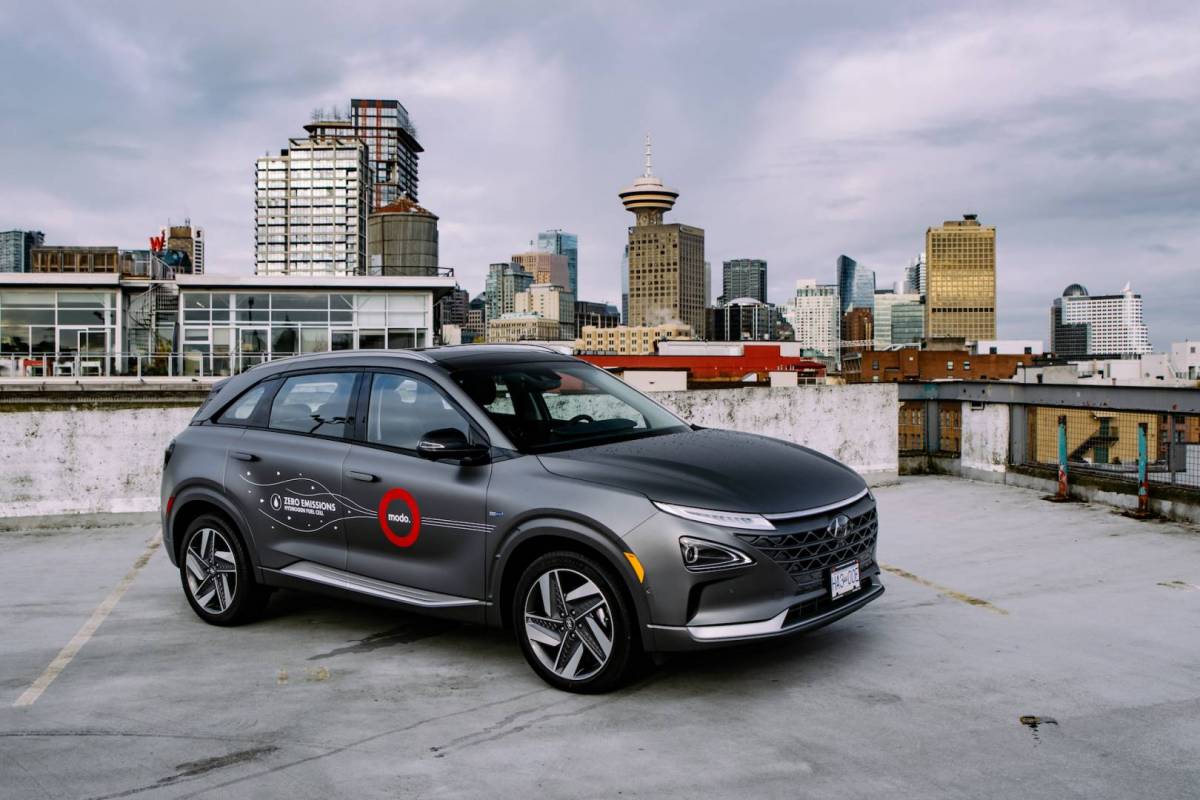
Earth Day— provides an important opportunity for consumers and businesses alike to demonstrate their support for environmental protection—something desperately needed given that climate change is by far one of the most frightening issues we are facing. Since 1850, the global average temperature has increased by 0.9°C.—with the five warmest years on record taking place since 2010. The planet is getting warmer due to increased concentrations of carbon dioxide and other gases in the atmosphere from burning fossil fuels.
The Canadian Hydrogen and Fuel Cell Association (CHFCA)—a national, nonprofit that works with corporations, government, and educational institutions to develop, demonstrate, and deploy hydrogen and fuel cell products and services in Canada—knows this better than anyone. Earth Day marks a crucial time for the CHFCA to promote clean tech solutions; the organization envisions a future in which industry can meet growing energy demands in an environmentally sustainable way.
By re-examining our sources of energy, we can reduce carbon dioxide emissions and halt further climate change. And hydrogen and fuel cell products are an important part of the solution. They were first used by utility vehicles such as forklifts and transit buses. But with increased pressure to come up with cleaner alternatives to fossil fuels, car manufacturers are now making hydrogen available in consumer vehicles as well.
Hyundai Auto Canada Corporation announced the national launch of the NEXO, Canada’s first and only fuel cell-powered consumer vehicle. NEXO is an electric vehicle powered by a hydrogen fuel cell which allows it to use renewable hydrogen—and emits nothing more than water vapour. Compared to battery electric powertrains, this technology offers superior range (up to 570 kilometres), refills in less than five minutes and is tough enough to take on even the coldest weather, making it particularly resilient to Canadians winters—east of B.C. of course!
Vancouver-based carshare co-operative, Modo, is well known for offering members more sustainable ways to get around. In fact, choosing Modo’s round-trip service reduces GHG emissions by up to 50 percent, and of their 700+ vehicles, one in five is an EV or hybrid. But now, in celebration of Earth Day, Modo has taken its commitment to clean mobility a step further, by partnering with the CHFCA and Hyundai to become the first and only carshare in Canada to add hydrogen vehicles to its fleet.
“Our goal is to experiment with as many alternative fuel types as possible,” says Selena McLachlan, Modo’s Director of Marketing. “In addition to better understanding user behaviour, we’ve learned a lot about the operational implications of having hybrids, full EVs, and plug-ins in our fleet. Bringing in the new hydrogen vehicles gives us an opportunity to add to our learnings, and gets us one step closer to an eventual zero-emissions fleet.”
NEXOs are a rare find in Vancouver. In fact, there are only 10 Canada. But through Modo, Vancouverites will have unparalleled access to experience the technology firsthand.
“We’re the only carshare with NEXO,” says McLachlan. “And while you won’t be able to buy one any time soon, members of Modo will be able to drive them and provide feedback to help shape the future of this technology.”
Modo members can book the NEXO starting Monday (April 22). While it’s still early days for hydrogen refueling infrastructure, Vancouver is home to one of Canada’s only public stations, located in the city’s Marpole neighbourhood.
“Hydrogen makes no-compromise, zero-emission vehicles possible for everyday use,” says Andreas Truckenbrodt, President and CEO of the Canadian Hydrogen and Fuel Cell Association. “Carsharing fleets are a great way to bring this promising technology onto the roads, and we are very happy to assist with the support of B.C.’s government.”
To learn more about clean energy visit the CHFCA website at www.chfca.ca/. If you’re not already a Modo member, you can join today and experience a hydrogen car for yourself. Use the promo code TRYNEXO at modo.coop/ to get $50 in free drive time.
Hydrogen Myths Busted
It’s expensive
With higher volumes, scientists optimizing the technology, and companies improving manufacturing, the price for hydrogen and fuel cells will continue to go down.
It’s dangerous
Like any fuel with high energy content, hydrogen needs to be handled properly to be safe. It is neither more nor less inherently hazardous than gasoline, propane, or batteries.
It isn’t a clean fuel
Hydrogen doesn’t create any emissions when used in a fuel cell. Producing hydrogen from natural gas does create some emissions, but in substantially lower amounts than the equivalent power obtained from gasoline or diesel. Completely clean hydrogen will be produced from solar, wind, or hydroelectricity.
There isn’t an abundant source
Hydrogen can be made from almost any source of energy. Hydro power, solar and wind power, nuclear power, geothermal power, and other energy sources can all be transformed into electricity and then, by electrolysis, into hydrogen.
It can’t compete with regular gas
Vehicles that use hydrogen in a fuel cell are twice as efficient as comparable gasoline vehicles—plus they emit no carbon dioxide, nitrogen oxides, or particles.
Hydrogen infrastructure is expensive and doesn’t exist
The investment into one hydrogen station can support many hundreds of fuel-cell vehicles. The Lower Mainland and Victoria will have six hydrogen stations in operation in 2019/20.
Read the most up to date Fuel Cell and Hydrogen Industry news at FuelCellsWorks




